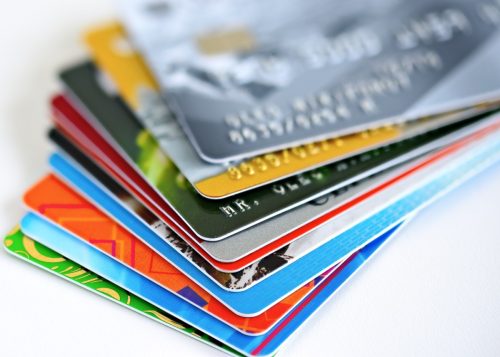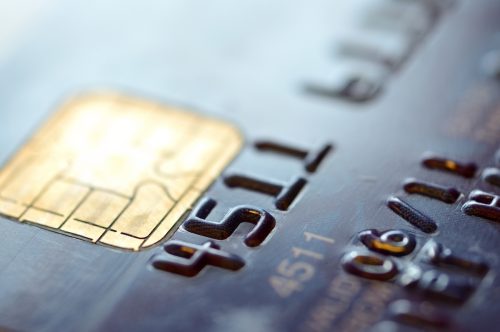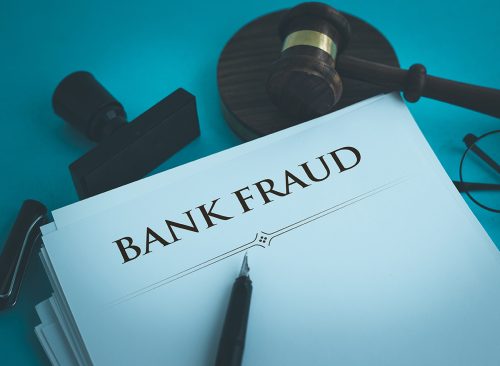Credit card fraud is on the rise. In 2022, more than 40,000 Americans reported fraud against one of the cards—up 23 percent from the year before. Experts believe the problem is even more widespread, because many people don't bother to report it. As the problem grows, it's important to stay vigilant for any funny business. Luckily, there are several easy habits you can add to your daily financial routine. These are seven ways to protect yourself from credit card fraud.
1
If It Seems Too Good to be True…

In a high-tech world, your great-grandfather's adage still applies. Sites that sell brand-name products at unbelievable discounts might be run by fraudsters who are just trying to scoop up your credit card information. Installing the browser extension Fakespot can alert you when you've stumbled onto a site that might be sketchy.
2
Don't Get Phished

If you receive a text message, email, call, or DM about your credit card that demands an urgent response, beware. It may be coming from someone who wants to get their hands on your credit card number. You don't even have to give someone your info—just clicking on a link can lead you to a shady site that may install malware on your computer, giving criminals access to your financial details, said Paul Fabara, Visa's chief risk officer, in the Washington Post.
3
Use Virtual Cards and Numbers

Some credit card companies offer "virtual" account numbers, which prevent your credit card's actual account number from going someplace you don't intend. You may also be able to set limits on the size of transactions.
4
Use Mobile Payment Apps

Mobile payment apps like Apple Pay and Google Pay use a technology called tokenization, which allows you to pay without exposing your actual credit card account number. So even if skimmers or scammers are able to access your transaction, they can't see your actual account number.
5
Don't Use Public Wi-Fi for Financial Matters

"If you disclose your credit card number or bank account over public Wi-Fi, you'll be vulnerable to hackers because these networks are often unencrypted," warns Beverly Harzog in US News & World Report. "Thieves may be lurking in public areas waiting to catch someone off guard and steal their information. Whatever financial moves you need to make, wait until you're on a secure network."
6
Set Up a Fraud Alert

Setting up a fraud alert with the major credit reporting companies—Experian, TransUnion, and Equifax—makes it harder for scammers to apply for credit in your name: It requires a potential creditor to call you to verify the application.
7
Stay on Top of Your Accounts

If fraud does occur, it's best to catch it as soon as it happens so you can nip things in the bud. Check your credit card and bank accounts regularly. Some accounts will allow you to set up text or email notifications when a transaction over a certain amount occurs, or even send you a daily balance alert. For bank accounts, an app like Digit will text you your balance and the last five transactions every day.















